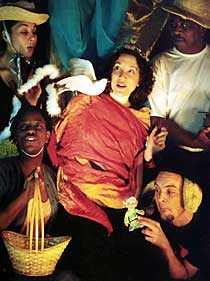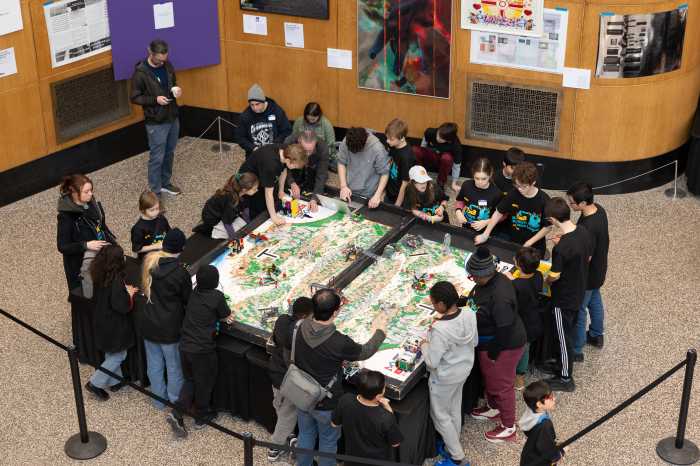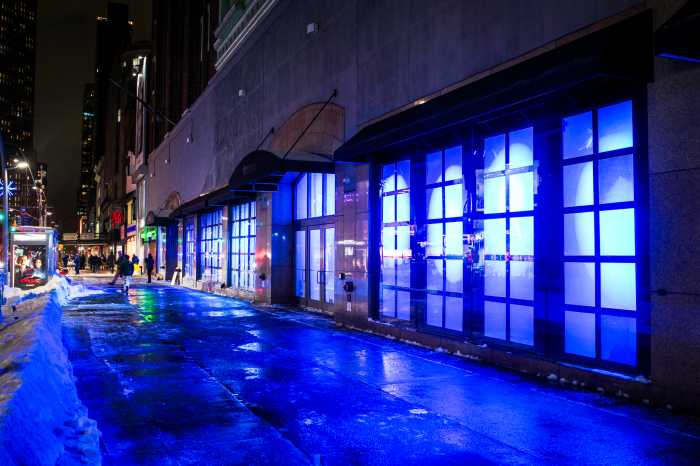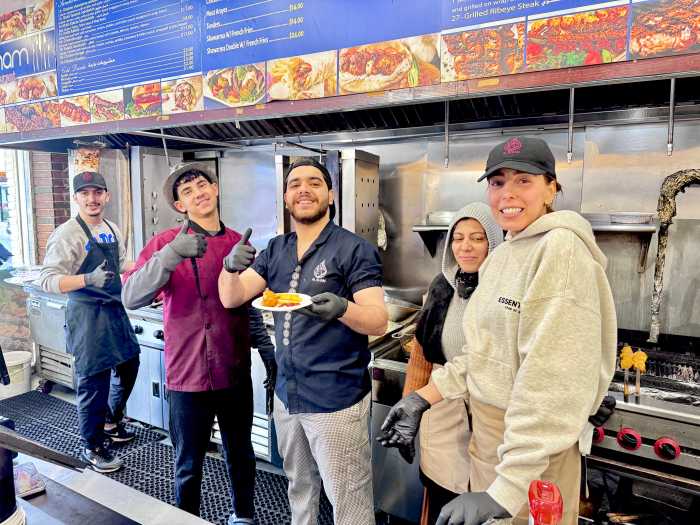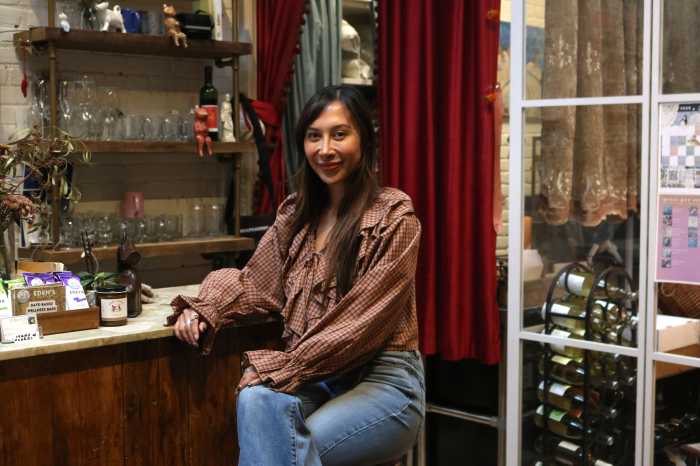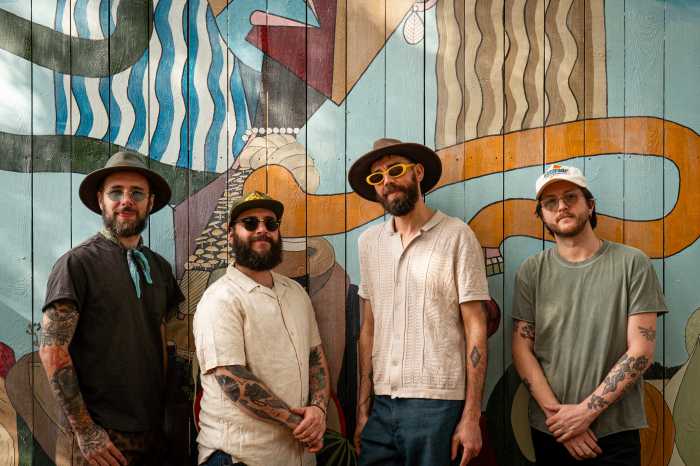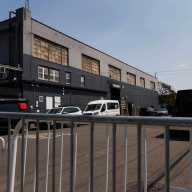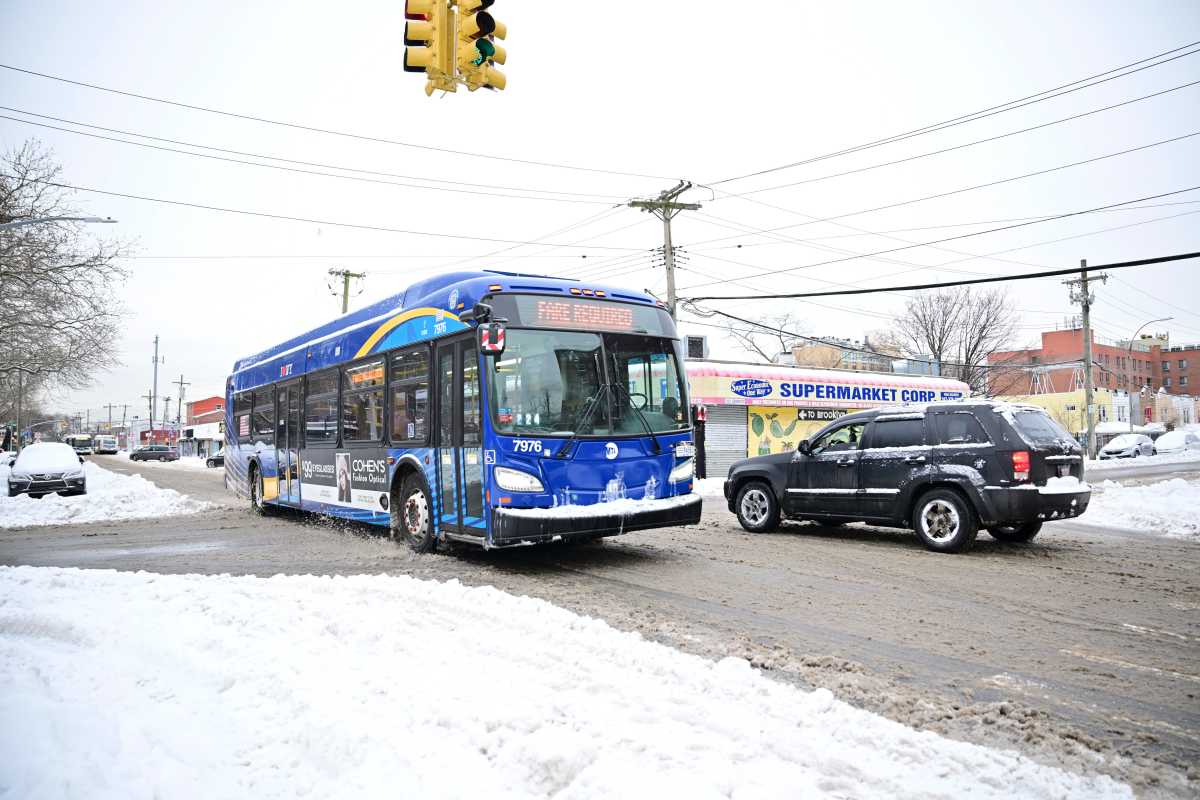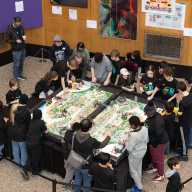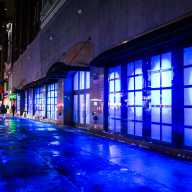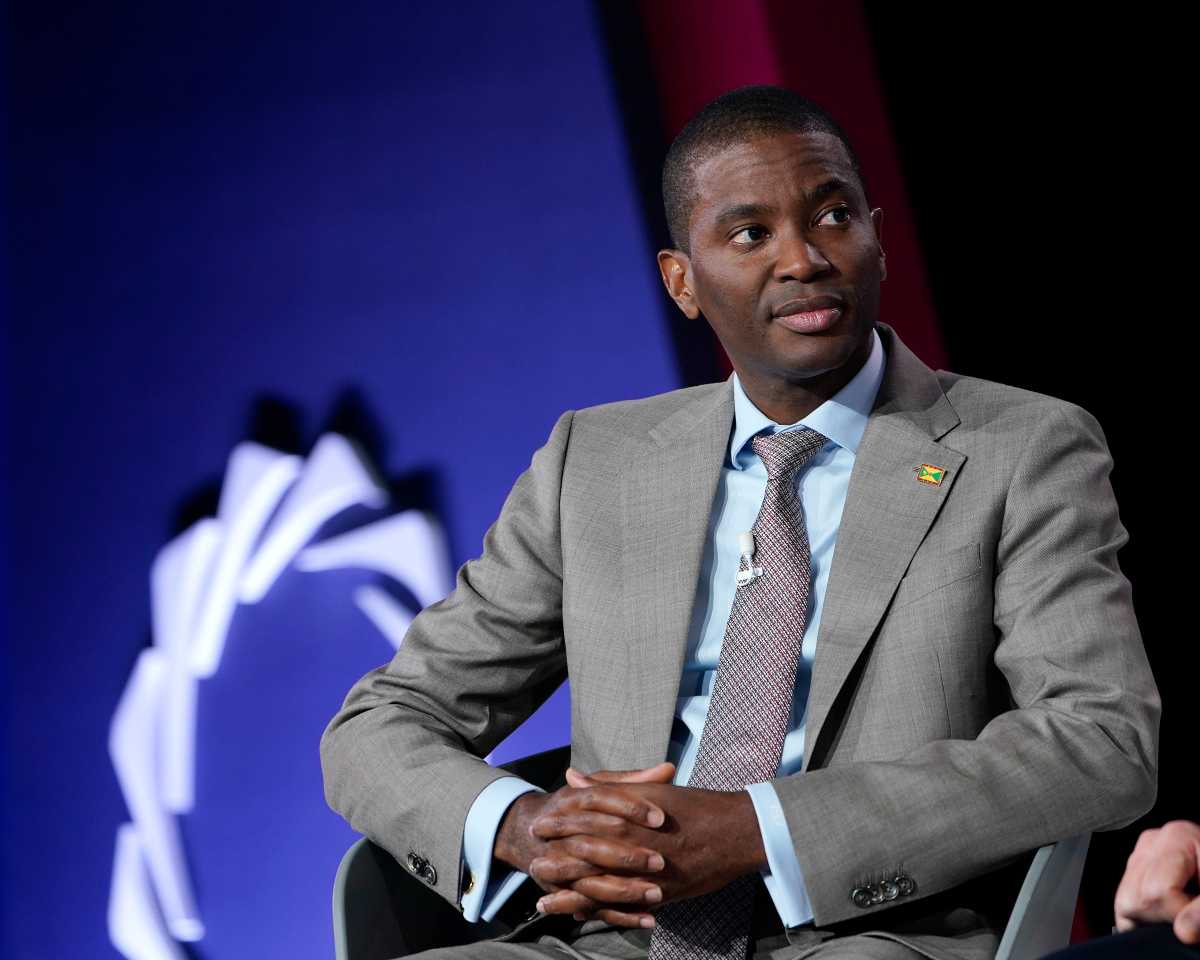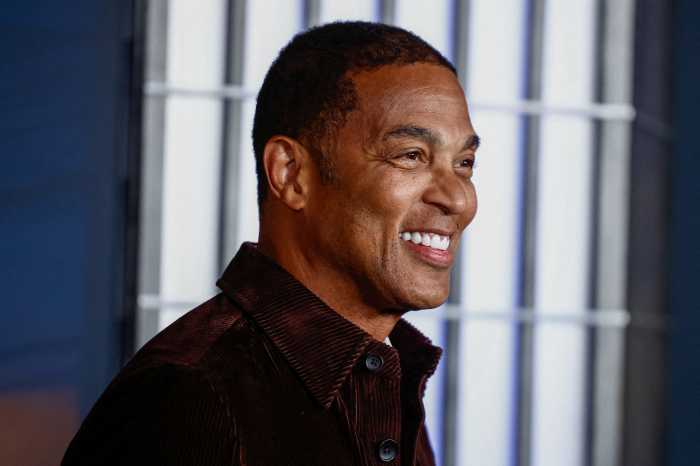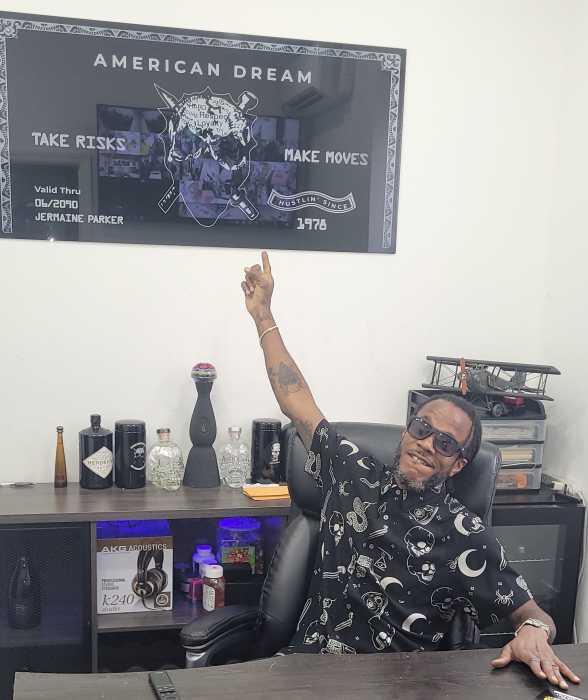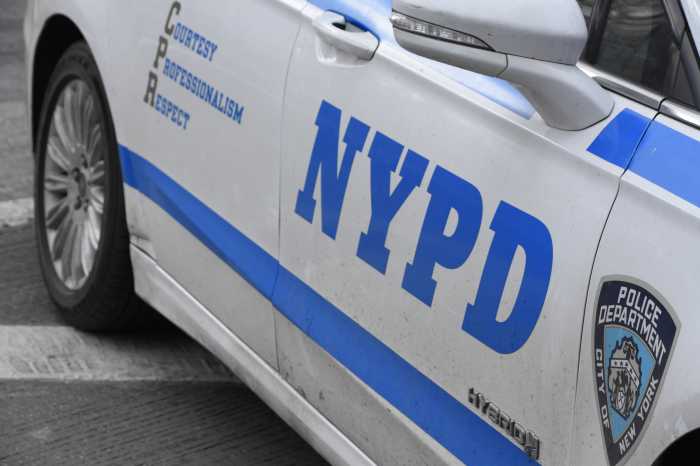When the brothers Grimm collected their
fairy tales, they were really transcribing the "children’s
and household tales" they had culled from interviews with
peasants. These tales reflected the traditions, customs and yearnings
of a rural society.
Bruno Bettelheim, in his groundbreaking book, "The Uses
of Enchantment," writes: " nothing can be as enriching
and satisfying to child and adult alike as the folk fairy tale.
As works of art, fairy tales have many aspects worth exploring
in addition to [their] psychological meaning and impact. For
example, our cultural heritage finds expression in fairy tales,
and through them is communicated to the child’s mind."
In this spirit, White Bird Productions has created "Borough
Tales: Brooklyn," now on stage at the Blue Heron Arts Center
in Manhattan. Written and directed by a talented team under the
artistic direction of Kathryn Dickinson, these Brooklyn-based
fairy tales are original versions of childhood favorites, given
a contemporary and urban twist.
Rapunzel lives high up in the clock tower of the Williamsburgh
Savings Bank building, where she longs to see the major sites
of Brooklyn: Green-Wood Cemetery, the Brooklyn Museum of Art,
the Brooklyn Bridge and the promenade in Brooklyn Heights.
The tale of "Snow White" takes place, alternately,
in the Coney Island curiosity shop of Jakob Grimm, the F train,
Prospect Park and a Brooklyn apartment.
The "Little Match Girl" is a foster child selling cigarette
lighters in front of Junior’s restaurant in Downtown Brooklyn.
It is New Year’s Eve, and she wants to return to her mother,
but she insists on remaining on the freezing streets until she
uses up all the warmth produced by her lighters.
Odette goes in search of her 12 brothers, who have been banished
by her father, the King of Brooklyn, and tries to figure out
how to get to them by subway. (The D train no longer runs and
no one knows where the G train goes.)
And "Lucky Hans" travels from the Williamsburgh Savings
Bank clock tower to a lake in Prospect Park. Along the way he
meets and is conned by an assortment of recognizable Brooklyn
characters.
"Borough Tales" has original, upbeat and whimsical
music written by Danny Ashkenasi. These little, light tunes strike
a note of frivolity and irony perfect for the tender, not-quite-tragic
tales.
The actors, who play multiple roles, recreate the set for each
new fairy tale by moving panels covered with strips of metallic
cloth. But mostly they leave the details of the setting to the
audience’s imagination – except for the large, ever-present face
of the Williamsburgh Savings Bank clock, the "beacon of
Flatbush" that keeps traffic moving and makes everything
bright for those who are lost.
"Borough Tales" reminds us of nothing so much as a
less structured, more urban version of James Lapine and Stephen
Sondheim’s "Into the Woods." But while "Into the
Woods" was concerned with personal self-discovery, "Borough
Tales" focuses on Brooklyn’s social, political and physical
world in all its ethnic and economic diversity.
Music, dance, a few good laughs and simple drama performed with
great zest make "Borough Tales" great entertainment
for the whole family. Children will be entranced by the delightfully
engaging stories; adults will appreciate the thought-provoking
issues and the inventive reworking of familiar tales.
In previous productions, White Bird explored how New York Harbor
has shaped peoples and societies over the last 400 years ("Islands:
An Urban Archipelago"), and the controversy surrounding
a proposed Brooklyn Navy Yard incinerator ("Combustion:
The Politics of Trash," produced at the Brooklyn Academy
of Music as part of their 1998-1999 season). In collaboration
with the young students of White Bird’s after-school theater
program, White Bird produced "Our Slope," an adaptation
of Thornton Wilder’s "Our Town," which was produced
at the Brooklyn Society for Ethical Culture in Park Slope.
"Borough Tales: Brooklyn" is the first in a series
of five theater projects that will feature works of culturally
diverse writers from all five boroughs. That gives New York audiences
a lot to look forward to.
White Bird Productions presents "Borough
Tales: Brooklyn" through March 23, Wednesday through Friday
at 7:30 pm; Saturday at 3 pm and 7:30 pm. Tickets are $15. The
Blue Heron Arts Center is located at 123 E. 23rd St. at Park
Avenue. For reservations, call (212) 279-4200.


